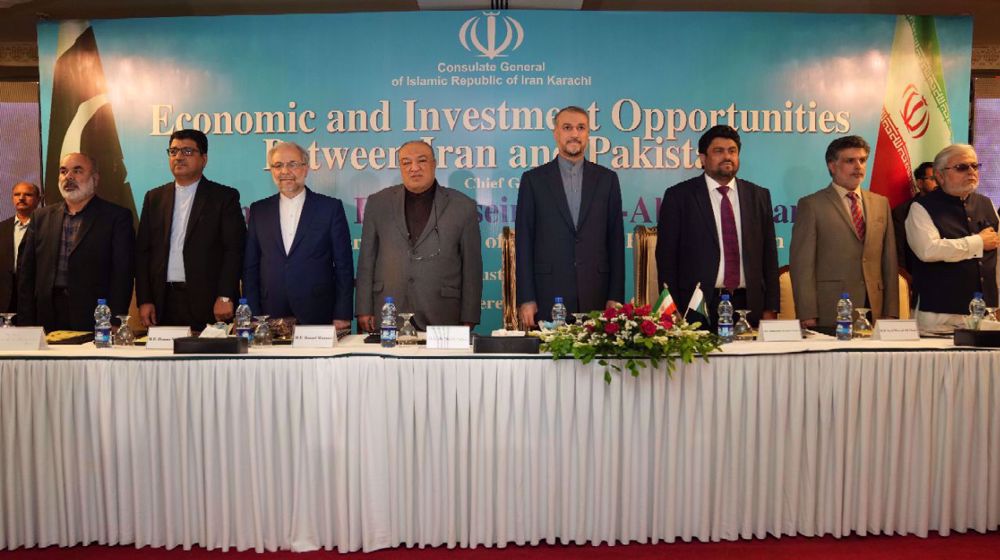Alwaght- Annual trade between Iran and Pakistan has reached 2.3 billion dollars in recent years despite various restrictions and obstacles, Iranian Foreign Minister Hossein Amir-Abdollahian said on Friday.
Addressing a meeting in Pakistan's Karachi city on the economic and investment opportunities for Iran and Pakistan, Amir-Abdollahian expressed hope that the volume of trade between the two countries would reach 5 billion dollars per year in the near future.
"To this end, promoting cooperation in the field of monetary and financial exchanges as well as reducing tariff and non-tariff barriers between the two countries are of paramount importance," he added.
Karachi is the economic and commercial hub of Pakistan.
Amir-Abdollahian said Pakistan has always been a significant neighboring country and the economies of the two states are intertwined.
“More than 900 kilometers of land border and a profusion of historical, cultural and religious values shared by the two countries have brought about lasting interaction between Iran and Pakistan.”
Pointing to the effective measures taken by Iran and Pakistan in recent years to expand relations of cooperation, not least in economy, the Iranian minister said the two countries have inaugurated two new border terminals and signed a memorandum of understanding to set up six joint border markets.
Amir-Abdollahian underscored the “strategic geographical position” of Iran and Pakistan and the fact that the two neighbors are “located on the path of international transit corridors such as the Belt and Road Initiative.”
The Iranian foreign minister also placed a premium on the two ports of Chabahar – in Iran – and Gwadar – in Pakistan. He encouraged Iran and Pakistan to exploit the capacities of the two ports to expand bilateral and regional economic cooperation.
“Pakistan can be a supplier of Iran's needs in the agricultural sector, and Iran can cover Pakistan's need for energy,” Amir-Abdollahian said.
Iran has been extending the Iran-Pakistan (IP) gas pipeline to the border of Pakistan while the Islamic Republic has increased its electricity exports to its neighbor, the minister said.
Referring to the undeniable role the private sector plays in developing economic cooperation, Amir-Abdollahian said Iran supported promotion of bilateral tourism.
Meanwhile, officials signed a document for the expansion of trade and economic cooperation between the chambers of commerce of Iran and Karachi.



























